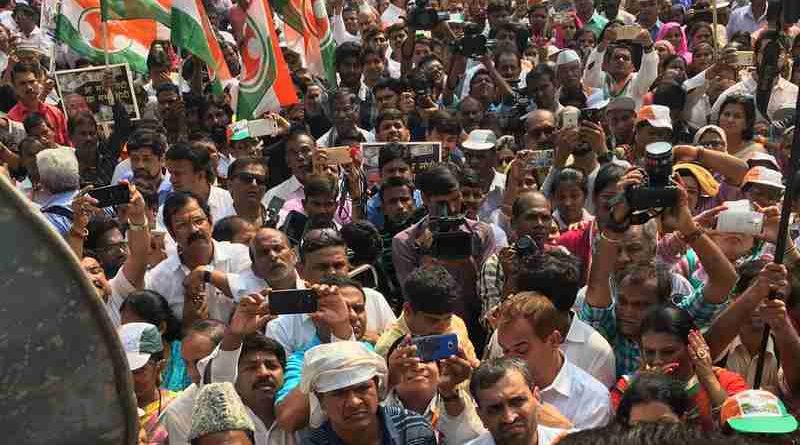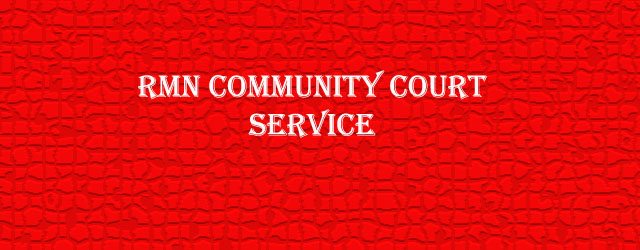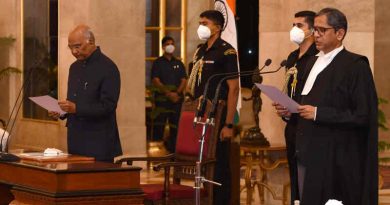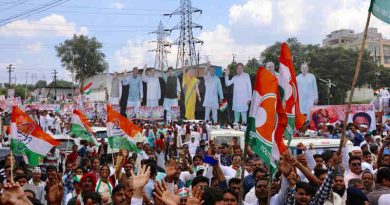No Democracy in India. It Is Parliamentary Dictatorship.
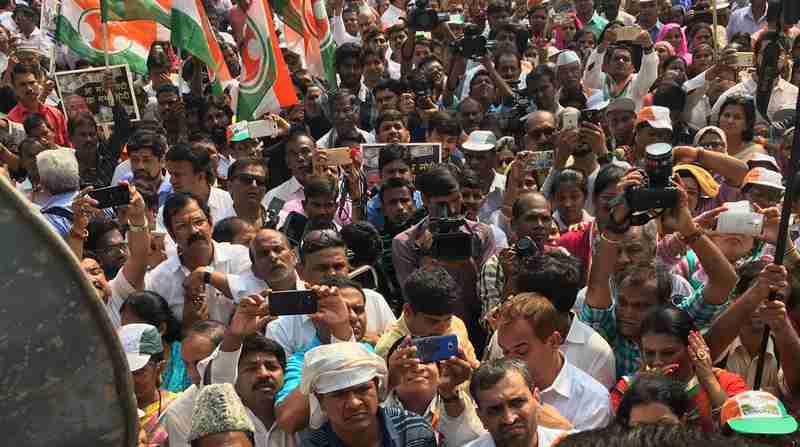
A major paradox in the elections is that majority of the voters don’t elect but they reject the party that forms the government.
By Rakesh Raman

In his Gettysburg speech of 1863, the-then U.S. President Abraham Lincoln introduced America’s representative democracy as the “government of the people, by the people, for the people.”
Driven by this principle of democracy, many progressive nations adopted it as the system of governance for the well-being of their people.
But slowly the democratically elected members in various governments started misusing their powers for their own selfish interests, reducing the concept of democracy to a mere farce.
Now the democratic system of governance has lost its very meaning. Today, people or common citizens don’t have any role to play in the affairs of a so-called democratic government. And there is a big divide between the rulers and the ruled.
After giving power to a few politicians, today’s democracy becomes autocracy or it plays in the hands of the wealthy to become plutocracy, which is a deformed form of democracy.
India is one such deformed democracy. While political analysts often discuss about the reforms in the Indian democratic system, it can’t be reformed. Rather, there is a need for a complete overhaul, a need for a totally new system of governance – which is free from the current parliamentary dictatorship.
The role of democracy ends in India immediately after the elections – most of which are not fair and just. Here voters are like slaves who vote to elect their masters who are, more often than not, uneducated, arrogant, senile, and criminals.
Global Scene
As a result, the democratic health of the country is going from bad to worse. This fact is also reflected in the findings of a global survey done by Global Democracy Ranking, a non-profit organization based in Vienna, Austria. It measures the quality of democracy on parameters such as politics, gender, economy, knowledge, health, and the environment.
For its recently published Democracy Ranking 2016, a total of 112 countries have been evaluated using a multidimensional approach. India, which claims to be the largest democracy in the world, is placed at a poor rank of 65.
Successive governments in India have leveraged democracy to their own advantage or for the benefit of a few politicians while depriving the citizens of their fundamental rights.
India is not the only country that has failed to achieve true democracy that is supposed to bring overall development uniformly for all the citizens. Today, it’s observed that the democratic systems in different economies of the world are crumbling and there is an increasing degree of unrest among the people in democratic nations.
Freedom House, a global think-tank that analyzes the political systems, observes that the acceptance of democracy as the world’s dominant form of government—and of an international system built on democratic ideals—is under greater threat than at any point in the last 25 years.
For the 11th consecutive year in 2017, “Freedom in the World,” Freedom House’s annual report on the condition of global political rights and civil liberties, showed an overall decline.
India is part of the global trend in which the viability of democratic systems is increasingly being challenged. It is leading the pack of countries that have lost respect for the concept of democracy.
Bureaucratic inefficiency is the worst form of corruption in India.
Successive governments in India have leveraged democracy to their own advantage or for the benefit of a few politicians while depriving the citizens of their fundamental rights. And bureaucratic inefficiency is the worst form of corruption in India. This form of political system is also termed as kleptocracy or the rule by the corrupt.
[ Download the Consultative Paper: Need to Transform the Political System in India ]
Corruption, attacks on minority communities, restraints on freedom of expression, human rights violations, gender inequality are among the traits of the current political system in India. It is assumed that democracy cannot be achieved and it cannot be delivered without these horrific traits. Then why do we need such a torturous democracy? And what is wrong with this system?
Election Paradox
The problem begins with the elections (Lok Sabha as well as State Assembly elections). Today, in India’s population of 1.2 billion, there are nearly 750 million voters. On average, about 60% voters vote.
It’s mostly seen that a candidate in any constituency wins the election with nearly 50% of the votes polled. So, if there are, say, 100 voters in a constituency, 60 will vote. And the winner will get 30 votes.
In other words, out of 100, 70 have not elected that candidate for their area. Then how can such a candidate be the true representative for the whole population in that area or constituency?
A major paradox in such elections is that majority of the voters don’t elect but they reject the party that forms the government.
But this faulty system is followed throughout India. Take, for example, the Lok Sabha elections of 2009. In those elections, 417 millions votes were polled out of total voters of 716 million.
In the 543-member Lok Sabha, a political party needs at least 272 seats for majority and to form the government. But the Indian National Congress (or Congress) won just 206 seats and formed the government – with support from smaller parties with fewer seats.
This is a major flaw by itself because a coalition government is formed on mutual convenience of political parties rather than any convergence of ideologies or objectives to serve the masses.
A major paradox in such elections is that majority of the voters don’t elect but they reject the party that forms the government. In 2009, Congress got 119 million votes, which is just 16.6% of the total votes. That means, 83.4% voters did not want Congress to form the government.
Similarly, Bharatiya Janata Party (BJP) formed the government in 2014. The BJP-led National Democratic Alliance (NDA) won 336 seats in the Lok Sabha election of 2014. The BJP itself won only 31% of all votes, which gave it 282 seats in the Lok Sabha (Parliament).
That means, 69% of voters and a bigger percentage of Indian citizens never wanted BJP to form the government. This is simply a mockery of democracy, which is instituted through a flawed election process.
People elect the candidates without analyzing their capabilities and then keep complaining during their tenures till the next elections.
How can a government function properly without having the trust of majority of its people? This fault in the Indian electoral system has been persisting for decades.
Voter Illiteracy
Among the other irritants in the present-day democracy is the lack of education among Indian people. The literacy factor is a big bottleneck in the progress of the country on all conceivable fronts.
This is also reflected in the election process, as people elect the candidates without analyzing their capabilities and then keep complaining during their tenures till the next elections.
According to government data, the national literacy rate is 74%. Most would think that this is a good achievement for a developing country like India. However, these figures are misleading. They conceal more than what they reveal.
The definition of literacy in India is flawed. Literacy is defined as “every person above the age of 7 years who can read and write in any language is literate.”
In the current knowledge-driven world, how can you expect such a naive person to take informed decisions in an election to elect the right candidate? While the entire education system in India is defective, you need to be at least a graduate and intelligent enough to understand the good and bad of governance in the democratic system.
India is the largest country in the world that is struggling to protect the democratic fiber in the nation, because the country is facing a severe leadership crisis.
Going by this yardstick, you don’t have even 20% voters in the country who are educated – and educated enough – to participate effectively in the election process. Consequently, those who vote, can’t think; and those who think, don’t vote.
Result: Incapable politicians and defective democracy that brings misery and pain for the people at large. Indian people are the victims of this defective democratic system.
Now, India is the largest country in the world that is struggling to protect the democratic fiber in the nation, because the country is facing a severe leadership crisis. There is a need to radically change the electoral system and the way government services are delivered to the citizens.
As there is no competent leader in India to spearhead this change, the democratic values are wearing away from the systems of the country’s governance. India can’t be called a democratic country anymore because the rulers are not capable to serve the masses.
Incompetent Candidates
The post-independence era in India (1947 – 2017) can be categorized into two phases: Transition and Development. In the transition phase, the leaders who directly participated in the freedom struggle took the reigns in their hands and anointed Jawaharlal Nehru as India’s first Prime Minister.
Nehru governed the country from 1947 to 1964. He and his colleagues in the government were abrupt in delivering the governance to people of India.
That means, instead of creating tailor-made administrative processes for the people of the country, they simply adopted the British systems, which were never conducive to growth. During 17 years of his rule, Nehru could not develop India-specific policies and plans for growth.
Majority of the people who adopted politics as a profession during the past 50 years are uneducated, unskilled, goons, or from the traditional political families.
In the post-Nehru period, or the development phase, the development was supposed to happen in the country. But for all political leaders in this phase, politics became a lucrative trade. People who wanted to make quick money or grab power started entering politics. They never had the will to serve the people.
As a result, majority of the people who adopted politics as a profession during the past 50 years are uneducated, unskilled, goons, or from the traditional political families. There is another category of passive politicians who came from other professions in which they failed or came after retirement. They are like film actors, sportspersons, businessmen, civil servants, journalists, and so on.
As most of them are illiterate or incompetent to run a democratic system efficiently, they can’t think about the welfare of the people. As Indian politicians are also ill-mannered, they misbehave with each other openly.
How can you expect them to be a part of the democratic system that is on the verge of collapse for want of a forward-looking approach?
Unskilled Ministers
In today’s competitive world, governments are supposed to be run like progressive corporations. Each and every department of the government must be in professional and competent hands.
The ministers heading each government department should be qualified and should have demonstrable skills to handle a specific domain like finance, education, law, HR, technology, foreign affairs, defense, and so on.
However, in the current democratic system, you need to just win an election by fair means or foul to get eligibility to become a minister while there is no minimum qualification required to contest an election. Worse, the candidates who lose elections can also become ministers with the backing of their political party.
India’s sorry plight is persisting because of the flawed democratic system – which nurtures incompetence and kills talent.
Even the new breed of dynastic politicians, who come with purchased and frivolous academic degrees from local and foreign universities, are unemployable for any professional job. But because of their lineage, first they get easy entry into politics. Then they easily become ministers. You can’t expect good governance from such incompetent heads of departments.
In a professional environment, incompetent bosses are kicked out, but in Indian government, there is no accountability for ministers. And even the performance parameters are not specified for them. They work in a totally free-wheeling manner and squander public money carelessly.
Result: India stands at the bottom of the pyramid in the world in all professional fields – such as, education, industry, sports, science, technology, economics, films, and so on.
Worse, a whopping 20% of the world’s 4 billion poor who live on less than US$ 2.50 per day, are in India. And India’s human development index, which indicates the level of skills in a country, is at a dismal rank of 135 in the world.
If you analyze the situation closely, you will find that India’s sorry plight is persisting because of the flawed democratic system – which nurtures incompetence and kills talent – beginning with the elections.
India will never be able to grow with this system under any political party and will remain a country of the poor and downtrodden for the next many centuries. Unfortunate but true. And there are plenty of other defects in the current political system of India.
Rajya Sabha
With 250 members, Rajya Sabha is the upper house of the Parliament of India. Unlike Lok Sabha where the Members of Parliament (MPs) are elected by the voters of India, Rajya Sabha members are chosen indirectly.
Rajya Sabha provides a backdoor entry to certain favored and privileged people to enter politics without facing the people in democratically organized elections. While 12 members of Rajya Sabha are arbitrarily nominated by the President of India, others are handpicked by state and territorial legislatures.
Indian people want an administrative system that can usher in an egalitarian society.
While most Rajya Sabha members are not directly in touch with the citizens, they are not quite aware of the needs of people at large. Still, the Rajya Sabha members are part of the decision-making process to deliver governance to citizens.
This is a serious defect as the Rajya Sabha members are not directly accountable to the voters and they don’t have any experience to serve the people.
President of India
In the present structure, the President of India has hardly any role to play in the development of the country. The President, who is called a mere rubber stamp, is largely chosen by the ruling political party to serve its own interests.
While most Presidents are tired and retired people, they have not been competent enough to make any democratic reforms. Rather, they just issue occasional superfluous, vague statements such as “Corruption is like cancer,” “India should grow,” and so on.
It’s seen that Presidents either enjoy frequent foreign trips on taxpayers’ money, or behave as consultants without giving any implementable solutions for growth in the country. But there is no accountability for them as they are not elected by the people at large. Do people really need a President?
No. Indian people don’t need such a figurehead President. Indian people don’t need incompetent politicians. Indian people don’t need criminals in politics. Indian people don’t need parliamentary dictators. Indian people don’t need this defective democracy which is working like slow poison for them.
Instead, Indian people want an administrative system that can usher in an egalitarian society for them where all enjoy an equal opportunity to live and progress. And that’s the whole point.
This article is part of our new editorial section that focuses on Lok Sabha Election 2019 in India.
By Rakesh Raman, who is a national award-winning journalist and social activist. Besides working at senior editorial positions with leading media companies, he was writing an exclusive edit-page tech business column (named Technophile) regularly for The Financial Express (a daily business newspaper of The Indian Express Group).
Earlier, he had been associated with the United Nations (UN) through United Nations Industrial Development Organization (UNIDO) as a digital media expert to help businesses use technology for brand marketing and business development. He also runs a free school for deserving children under his NGO – RMN Foundation.

